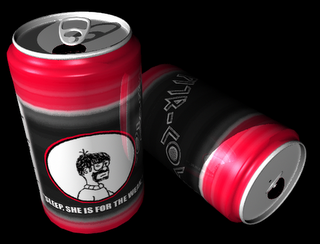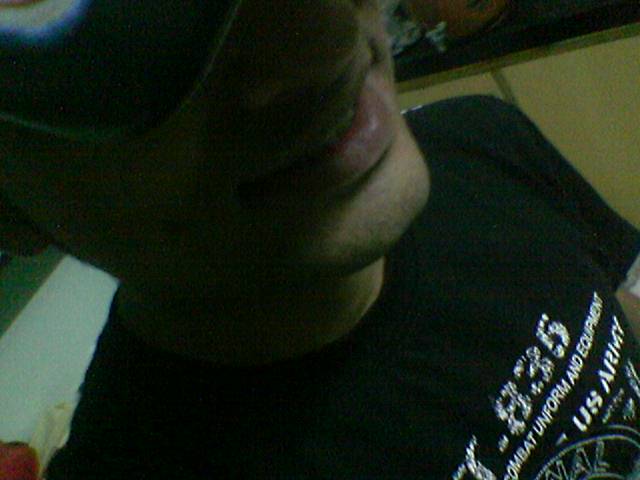 The recent reports of soft drinks containing pesticides has stirred the markets as well as the government - both in India and in US(i'll tell you how).
The recent reports of soft drinks containing pesticides has stirred the markets as well as the government - both in India and in US(i'll tell you how).Many states in India have already banned these aerated drinks from all educational institutions while the government of Kerala has gone as far as to ban the production and disribution of colas in the state!
As these aerated drinks have a huge market share, these steps pose a big threat to the existence of these cold-drink giants in this country and imagine the loss of market and erosion of brand image in the country with the head count of nearly 125 crore!
So obviously Pepsi and Coca Cola are crying foul and bringing on US government to intervene the matter and help them by "blackmailing" India about the consequences if it goes on the "proposed" path.
So it'll be interesting to see what happens next...but for a change it was refreshing to see these all-time fighting cola giants getting united for a single cause-their very own survival! :)
By the way after what i saw on the TV regarding colas, one thing is for sure that i wont be tempted to take a sip next time i see those fancy curvy bottles...Will you still be tempted??


3 comments:
But I really wish officials first take some initiative in providing clean water in India. Colas we pay to drink but water we drink to survive.
Someone just want to get into limelight.
hey agree!
In fact I am anywyz off cola drinks! But these reports definately dissaude one from consuming anymore of these aerated drinks!
Guys this article "Milk is more dangerous than cola" by Swaminathan Aiyar in the Sunday edition of Times Of India has really got me thinking...
Read the excerpts :
Cola companies cite government surveys revealing pesticide levels 3,080 times higher in milk, 69,700 times higher in vegetables and 111,600 times higher in fruit than in the proposed cola standards. Nutritionists treat these items as dietary essentials, which are permitted high levels, unlike colas, which are inessential and merit microscopic pesticide levels. But if you ban colas, what will people switch to? Milk, tea, cane juice and fruit juices. All of them have more pesticides than colas.
Rather than focus on colas, we should highlight the dangers in traditional foods like milk, fruit and vegetables.
Let’s start with milk. Indians have an ancient attachment to it, arising from the story of Krishna, the cow-herd. So no NGO, politician or nutritionist dares call milk dangerous. The way pesticide norms are drawn up, the traditional food basket (including milk) is regarded as essential food whose pesticide levels are regrettable but given, and the aim is to reduce pesticides in other items labelled inessential (like cola).
To me, this seems crazy. Young children, who drink milk but not cola, ingest enormous doses of pesticide, thousands of times higher than in cola. Yet, no NGO or ministry dares call this a problem.
Is milk an essential food? Not at all. Humans evolved for hundreds of thousands of years before herding
cattle, and flourished despite drinking no milk. Even today, large parts of Africa and China drink no milk. It is not essential.
Indeed, milk is a health hazard. For millions of lactose-intolerant people, milk is a poison. Many city-folks know about lactose intolerance, but hundreds of millions of villagers do not, and kill or maim their children by dosing them with milk.
Humans are the only species to drink milk after being weaned from the breast. How do they achieve this feat? By drinking the milk of other creatures, something no other species does. Not surprisingly, drinking alien milk produces allergies and a host of other health problems. Evolution has not yet made humans proof against alien milk.
Hence, a growing number of people have become vegetarians — they eat neither meat nor dairy products. They know milk is not essential, it is a hazard.
The guru of baby and child care, Dr Benjamin Spock, opposed giving cow’s milk to children, saying it can cause anaemia, allergies, diabetes and (in the long term) heart disease.
Another US author, Dr Fuhrman says in his book Disease-Proof Your Child, that cow’s milk is linked to anal fissures, childhood-onset (Type 1) diabetes, chronic constipation, Crohn’s disease, ear infections, heart attacks, multiple sclerosis, and prostate cancer. Fifty years of heavy advertising by the milk industry have created an illusion of a health food, but the reality is different. Dairy foods should be consumed in limited quantity or not at all.
Dr John McDougall, another American doctor, explains that high fat is a major dietary culprit in milk. Cow milk is labelled as having 3.5% fat, but this fat contributes 50% of the calories in milk. The percentage of fat is as high as 7% in buffalo milk, which is prized in India for its butter content, but is the unhealthiest of all.
Finally, milk (like all animal products) is a concentrator of pollutants (pesticides, heavy metals). That makes it a hazard. The US authorities classify milk as an allergen, and routinely force US food companies to withdraw products that fail to mention that milk is an ingredient.
So, will any Indian NGO take up the challenge of denouncing milk as a health hazard? I doubt it. Bashing MNCs is much easier than bashing a sacred cow. Politicians and NGOs will point to the big employment yielded by milk production. For the sake of transparency, they should specify how many people they are prepared to see killed per thousand jobs created. Pretending that milk is essential and harmless is both false and nontransparent.
Post a Comment